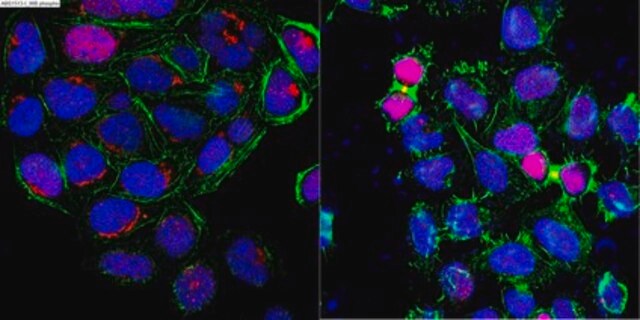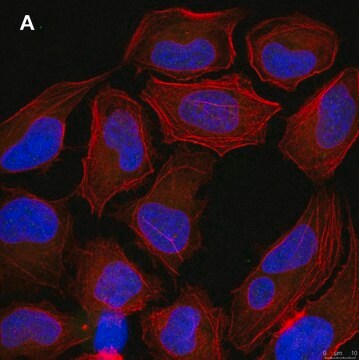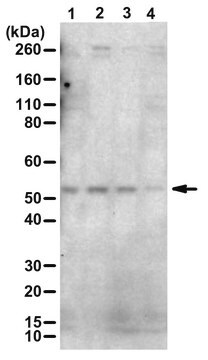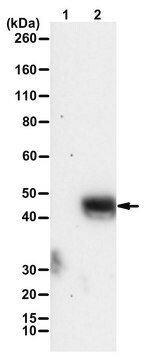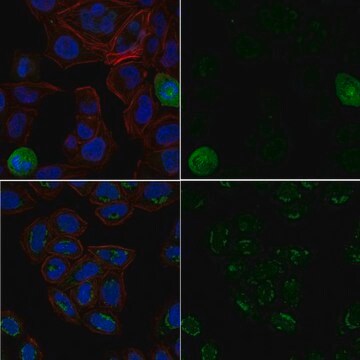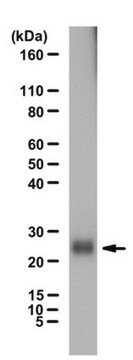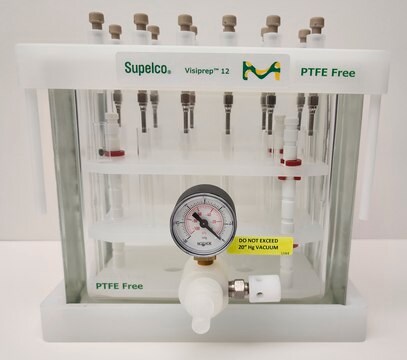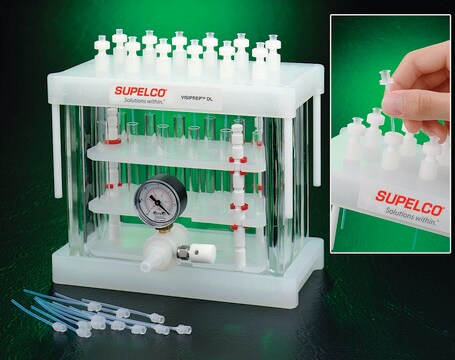ABS2206
Anti-phospho-Ubiquitin (Ser57)
About This Item
Productos recomendados
biological source
rabbit
Quality Level
conjugate
unconjugated
antibody form
purified antibody
antibody product type
primary antibodies
clone
polyclonal
mol wt
observed mol wt ~28 kDa
purified by
affinity chromatography
species reactivity
human
species reactivity (predicted by homology)
mouse, chimpanzee, hamster, rat
packaging
antibody small pack of 100 μg
technique(s)
affinity binding assay: suitable
western blot: suitable
isotype
IgG
epitope sequence
N-terminal half
Protein ID accession no.
UniProt accession no.
shipped in
2-8°C
target post-translational modification
phosphorylation (pSer67)
Gene Information
human ... UBB(7314)
General description
Specificity
Immunogen
Application
Evaluated by Western Blotting with a construct containing GST-tagged recombinant fragment of Ubiquitin phosphorylated on serine 57.
Western Blotting Analysis (WB): A 1:1,000 dilution of this antibody detected a construct containing GST-tagged recombinant Ubiquitin phosphorylated on serine 57, but did not react with non-phosphorylated construct. (Phospho-Ubiquitin construct: Courtesy of Dr. Jesse Rinehart, Yale University, School of Medicine).
Tested Applications
Affinity Binding Assay: A representative lot of this antibody bound phospho-Ubiquitin (ser57) peptide with a KD of 1.0 x 10-12 in an affinity binding assay.
Note: Actual optimal working dilutions must be determined by end user as specimens, and experimental conditions may vary with the end user
Physical form
Storage and Stability
Other Notes
Disclaimer
¿No encuentra el producto adecuado?
Pruebe nuestro Herramienta de selección de productos.
Storage Class
12 - Non Combustible Liquids
wgk_germany
WGK 1
Certificados de análisis (COA)
Busque Certificados de análisis (COA) introduciendo el número de lote del producto. Los números de lote se encuentran en la etiqueta del producto después de las palabras «Lot» o «Batch»
¿Ya tiene este producto?
Encuentre la documentación para los productos que ha comprado recientemente en la Biblioteca de documentos.
Nuestro equipo de científicos tiene experiencia en todas las áreas de investigación: Ciencias de la vida, Ciencia de los materiales, Síntesis química, Cromatografía, Analítica y muchas otras.
Póngase en contacto con el Servicio técnico